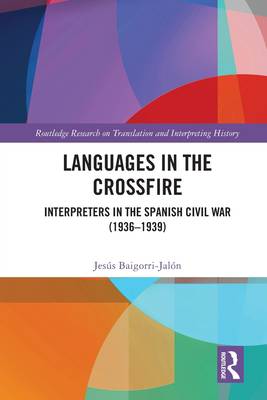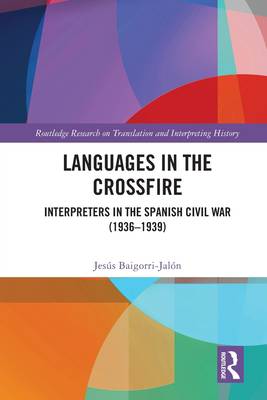
- Afhalen na 1 uur in een winkel met voorraad
- Gratis thuislevering in België vanaf € 30
- Ruim aanbod met 7 miljoen producten
- Afhalen na 1 uur in een winkel met voorraad
- Gratis thuislevering in België vanaf € 30
- Ruim aanbod met 7 miljoen producten
Omschrijving
This book sheds light on the important role played by interpreters during the Spanish Civil War, offering a historical overview of the ways in which interpreters on both sides mediated the myriad linguistic, cultural, and ethical difficulties of wartime communication.
Drawing on archives, interpreters' memoirs, and testimonies from their own children, the volume extends beyond traditional historiographic accounts to demonstrate the significance of interpreters' work in facilitating communication during the war across a range of settings, including in combat, hospitals, interrogations, detention camps, and propaganda. Baigorri-Jalón showcases the diverse backgrounds of these interpreters through individual and collective portraits, paying special attention to the work of the many women working as interpreters during the conflict. In turning its attention to lessons from the past, the book reaffirms the work of interpreters in present-day international conflicts toward better understanding the ethical dilemmas they face, in wars, humanitarian aid, demobilization tasks, and multilingual criminal proceedings.
This volume, the first book in the Routledge Research on Translation and Interpreting History series, will be of interest to scholars in translation and interpreting studies, particularly those interested in historical and sociological approaches as well as Spanish Civil War scholarship.
Specificaties
Betrokkenen
- Auteur(s):
- Uitgeverij:
Inhoud
- Aantal bladzijden:
- 248
- Taal:
- Engels
- Reeks:
Eigenschappen
- Productcode (EAN):
- 9781032013671
- Verschijningsdatum:
- 9/01/2023
- Uitvoering:
- Paperback
- Formaat:
- Trade paperback (VS)
- Afmetingen:
- 152 mm x 229 mm
- Gewicht:
- 340 g

Alleen bij Standaard Boekhandel
Beoordelingen
We publiceren alleen reviews die voldoen aan de voorwaarden voor reviews. Bekijk onze voorwaarden voor reviews.











